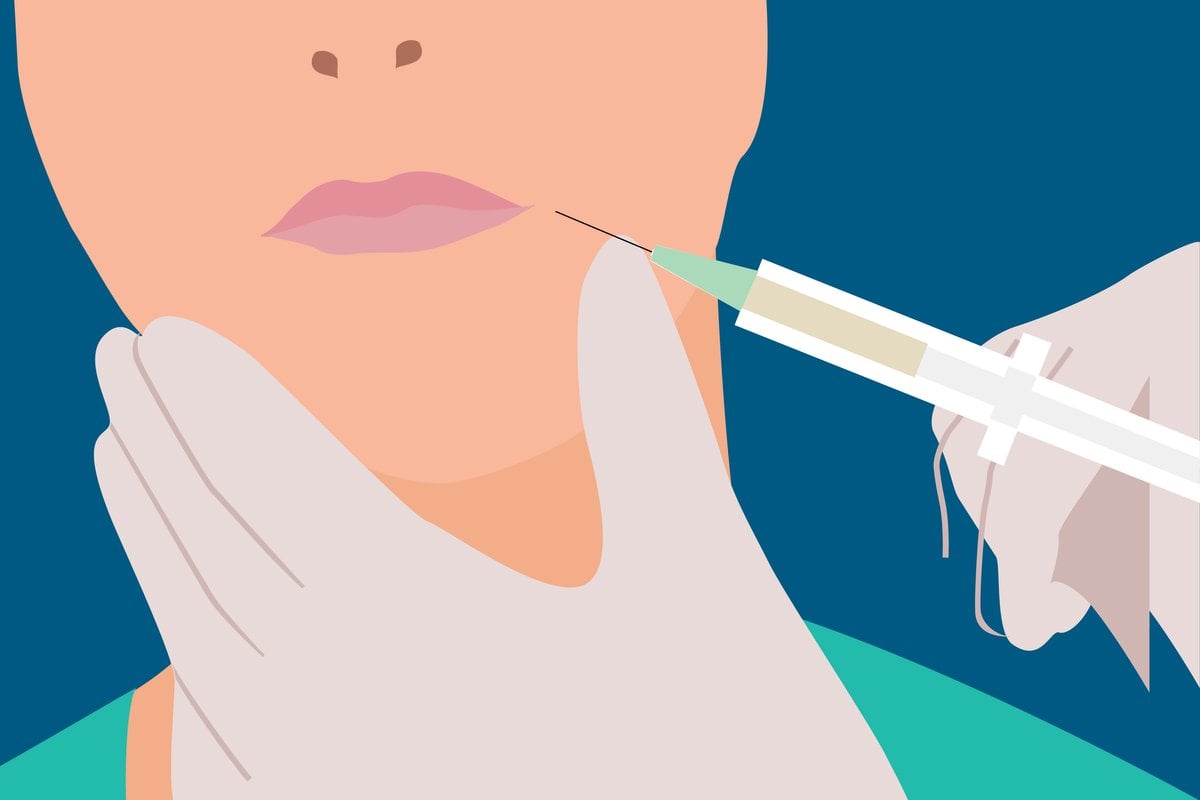
As Mamamia's health and beauty writer, a large part of my job involves nagging experts on the daily. A lotta different experts, who absolutely have full-time jobs, but are always kind enough to lend me their brains. From dermatologists and GPs to heart surgeons and psychologists - you name it.
One of my most favourite bunch to speak with? Surgeons. Specifically, aesthetic surgeons.
Why? Because the cosmetic industry can be confusing. Scary. Dangerous. And lots of people want to know what treatment does what, and what they should look out for.
Watch: SBS programme Insight looks at the growing popularity of cosmetic procedures such as anti-wrinkle injections and fillers. Post continues below.
Over the years I've learnt many useful things about the medical aesthetic industry, the advancements in non-surgical and surgical technology and some of the most popular treatments available.
So, I thought I'd share them with you.
Here's some of the best expert-approved advice I've learnt from speaking with aesthetic experts regularly.
Top Comments